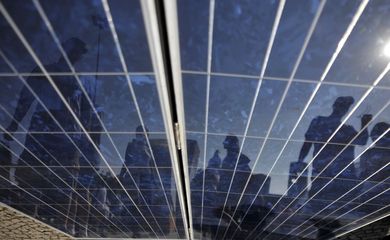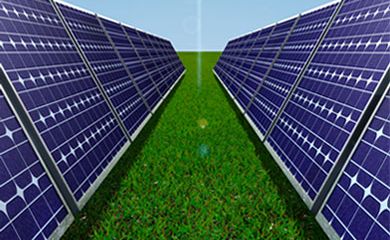Over 1 million homes expected to produce own energy by 2024


Today, photovoltaic solar panels, like these in Rio de Janeiro, account for some 90 percent of distributed energy installations in Brazil.

According to estimates from the National Electric Energy Agency (ANEEL), by 2024, some 1.2 million households in Brazil are expected to adopt the distributed energy generation system, which allows consumers to cut down costs by installing small renewable energy generators, like solar panels and microturbines, and pass the exceeding energy on to local distributors.
To serve all the energy needs of his home, ANEEL Director Tiago Correia has set up eight solar panels in his house. He argues that, apart from encouraging the use of renewable energy, the system reduces investment in distribution networks, as it “brings together generation and consumption.”
ANEEL's new rules for distributed generation in Brazil came into effect early this month, and are expected to raise the demand for the system. Among the novelties is shared generation, which means a group of people may join efforts to start a micro- or minigeneration scheme and use it to lower electricity costs.
This will make it possible for more people to choose shared generation, Correia claims. “The larger the system, the lower installation costs are, because some costs are diluted. This brings the investment yield quicker, apart from making access to credit easier,” he noted.
Also authorized by ANEEL was the generation of energy somewhere other than the place of consumption. For instance, energy may be generated in a farmhouse and consumed in an apartment downtown, provided both sites are within the service area of the same distributor. Rules also make room for distributed energy in condos, where energy may be shared among tenants according to their own needs.
If generation in a given month surpasses consumption, consumers are given credit they may use to lower costs for the upcoming months. The new rules brought the expiry date for credit from 35 to 60 months.
From 2014 to 2016, the adoption of the new model quadrupled, going from 424 to 1,930 connections. The surge this year could reach 800 percent, ANEEL says. “There is great potential for growth, and the growth rate has been exponential, not least because the base is still low,” Correia notes. Today, photovoltaic solar panels account for some 90 percent of distributed energy installations in the country.
“The revised rules will bring about conditions for a significant rise in the participation of the Brazilian population in distributed energy. Brazil has just become noted for encouraging the use of distributed energy, especially solar energy,” said Rodrigo Sauaia, head of the Brazilian Photovoltaic Solar Energy Association (ABSOLAR).
Translated by Fabrício Ferreira
Fonte: Over 1 million homes expected to produce own energy by 2024





